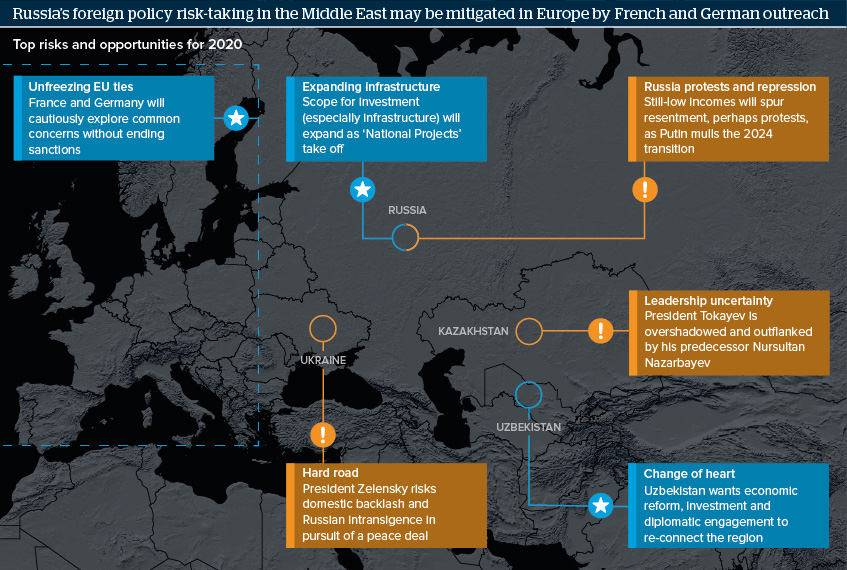Risks and opportunities 2020: Russia and Eurasia
Russia’s principal risks are domestic; its neighbours’ prospects will depend in part on their ties with Moscow
Source: Oxford Analytica
Outlook
Russia’s efforts to project great-power confidence in the Middle East contrast starkly with sluggish growth prospects at home. President Vladimir Putin is often more involved in foreign policy, but it is domestic resentment that poses risks to stability if he cannot raise real incomes. He will instruct a new government to turn the situation around and if necessary let it take the blame. Its tasks will include driving the ‘National Projects’, which should bring investment in infrastructure and social-sector provision.
The French and German leaders are, for different reasons, embarking on a rapprochement with Moscow based on identifying common interests and downplaying difficulties. By contrast, Washington may pay less attention to Russia.
Impacts
- Ukraine’s government will press ahead with reform bills despite the risk of domestic hostility to some of them.
- Despite a promising start under President Volodymyr Zelensky, deep divisions on basic principles will obstruct a peace settlement.
- Uzbekistan will play a prominent role in building a more cohesive Central Asian regional identity and purpose.
- Kazakhstan and Belarus will manoeuvre around Russia, a close ally and sometimes troublesome neighbour.
See also
- Uzbekistan would add extra weight to Eurasian bloc - Dec 3, 2019
- Prospects for the Russian economy in 2020 - Nov 15, 2019
- Ukraine talks back on track with no clear way forward - Sep 26, 2019
- More graphic analysis
